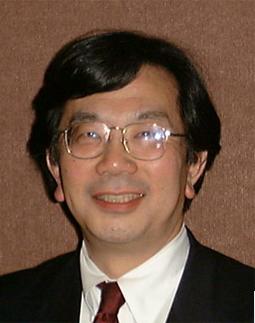IEEE
ICMA2006 Conference
Plenary
Talk
INTELLIGENT
POWER ASSIST SYSTEMS:
Mechatronic
Systems Auto-Adaptive to Varying Human Characteristics and Environmental
Conditions
Masayoshi
Tomizuka,
Ph.D.
Cheryl
and John Neerhout, Jr., Distinguished Professorship
Chair
and Professor
Department
of Mechanical Engineering
University
of
California
Berkeley
,
CA
94720,
U.S.A.
Tel.
510-642-0870, Fax. 510-643-5599, E-mail tomizuka@me.berkeley.edu

Abstract:
Modern
technologies, in particular automation and mechatronics technologies, were
originally intended to achieve higher productivity and better product quality.
They are now steadily penetrating our daily lives either indirectly or
directly. We are surrounded by
mechatronic products and interact with them in many ways. It has
become critically important to consider the human factors in the design and
development of mechatronic products from various
aspects, and the proposed research will provide a scientific basis in this
regard. This presentation is
concerned with an investigation to develop the understanding of power assist
systems which add assistive power or force to the power or force input supplied
by a human. Such systems involve bilateral coupling between the human, the
actuator (power assisting device) and the environment.
Examples that may take advantage of such advances are the electric
power-assisted steering (EPS) system for automobiles and the electric bicycle.
Intelligent
power assist systems (IPASs) 1) adaptively handle
the interaction between human-machine-environment,
2) assist the human by sensing the human乫s intention and
augmenting assistive power in optimal manners and 3)
isolate the human from undesired environmental disturbance inputs while
retaining essential bilateral physical coupling between the human and the
environment. IPASs are distinguished from
conventional power assist devices and haptic devices.
The role of conventional power assist devices is limited to amplifying or
augmenting the power supplied by users.
Haptic devices supply users with feedback information on the environment, but
the information is synthesized. In
other words, haptic devices do not provide direct
physical coupling between the user and the environment.
By achieving the second objective, this project will establish the
methodology to design intelligent power assist devices that allow the actuator
to provide forces to assist human and at the same time reduce the transmission
of undesired disturbances from the environment to the human.
Research issues are identified from EPS
systems, electric bicycles and power assist wheel charis,
and the role of advanced control theories in intelligent power assist systems
will be explored.
Masayoshi
Tomizuka
holds the Cheryl and John Neerhout, Jr.,
Distinguished Professorship Chair in the Mechanical Engineering Department of
the
University
of
California
at
Berkeley
. He received his B.S.
and M.S. degrees in Mechanical Engineering from
Keio
University
,
Tokyo,
Japan
and his Ph. D. degree in Mechanical Engineering from the Massachusetts
Institute of Technology in February 1974.
He joined the faculty of the Department of Mechanical Engineering at the
University
of
California
at
Berkeley
in 1974.
He served as Vice Chair of Mechanical Engineering from December 1989 to
December 1991 and from July 1995 to December 1996. He also served as Director
of Engineering Systems Research Center of the
College of Engineering
from July 1999 to August 2002. He served as Program Director of the Dynamic
Systems and Control Program at the National Science Foundation from September
2002 to December 2004.
At UC Berkeley,
he teaches courses in dynamic systems and controls.
His current research interests are optimal and adaptive control, digital
control, signal processing, motion control, and control problems related to
robotics, machining, manufacturing, information storage devices and vehicles.
He has published more than 400 papers in
archival journals and refereed conference proceedings.
He has supervised about 80 Ph. D. students to completion. Many of his
students teach at national and international academic institutions and others
work as leaders in various industries. He
served as Technical Editor of the ASME Journal of Dynamic Systems, Measurement
and Control, J-DSMC (1988-93), Editor-in-Chief of the IEEE/ASME Transactions on
Mechatronics (1997-99) and Associate Editor of the Journal of the International
Federation of Automatic Control, Automatica (1993-99).
He was General Chairman of the 1995 American Control Conference, and served as
President of the American Automatic Control Council (1998-99).
He is a Fellow of the ASME, the
Institute of Electric
and Electronics Engineers (IEEE) and the Society of Manufacturing Engineers.
He received the DSCD Outstanding Investigator Award (1996), the Pi
Tau Sigma-ASME Charles Russ Richards Memorial Award (1997) and the
Oldenburger Medal (2002).